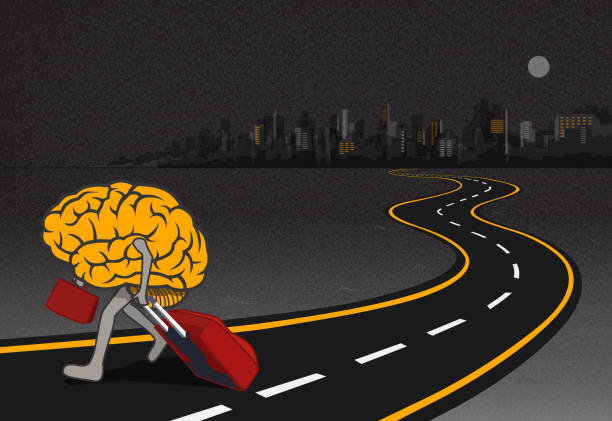About 2.5 million people leave India each year according to Wikipedia. Most of this number moves to the United States, United Arab Emirates and Malaysia as the top three most sought after destinations, respectively. In 2022 alone, approximately 8,000 high net-worth individuals would be moving out of India, according to Henley Global Citizens Report. Not only that, India is the country to witness highest number of emigrants leaving the country in recent years of all the countries in the world. Not Pakistan, not China, but India. Having a huge population does help inflate these numbers to a good extent but why only India? If India has been among the fastest growing economies in this decade, then why are Indians leaving India to settle abroad? For that we have to understand what brain drain is, what are its implications on the countries that directly face it and those countries that have to accommodate large number of immigrants.
What is brain drain?
When a country faces emigration of highly skilled and educated people who settle in another country for better work conditions and more pay, we call this phenomenon:
Brain drain. But why should we talk about it? Is it bad for India? If so can we change it for the better? Let us try to answer these questions.
Brain drain is usually bad for a country because the country facing mass emigration is losing highly skilled human resources, which further causes the country’s growth to be stunted compared to others. And it is more often a developing nation that is facing this issue. On the other hand, the country which receives the bulk of this skilled labor-force get to witness more development, improving its already developed status and increasing the divide between the countries in terms of development. The country which is deprived of its skilled workforce faces various other difficulties like lack of innovation, lack of research and specialized workforce.
For a country like India it becomes a greater challenge
because they get their education and training here in India but the country doesn’t get to enjoy the fruits of their skills. While education and vocational training doesn’t come free and the government uses fair share of yearly budget on education, it fails to retain the skilled individuals because of lack of desirable facilities like good pay and other perks compared to a more developed country with a higher per capita income. A World Bank study points out that most migrations happen due to three major reasons, namely, career prospects, social injustices and compensations or perks.
Studying abroad only stands as the fourth reason. According to experts, India’s lack of an equally established manufacturing sector, as the robust service sector, is a big contributor to this problem. India had shifted from previously being an agriculture driven economy in pre-1991 reform era to being a service sector driven economy in current decade.
This has absorbed much of highly educated individuals but low skilled, blue-collar workers have stayed mostly in agriculture or migrated to countries like Saudi Arabia, United Arab Emirates for manual labor. The underdeveloped manufacturing sector and lack of mass industries have also pushed highly educated individuals like managers to migrate to another countries like USA, Canada, Germany.

However, it is not entirely a bleak situation, especially for the people who migrated to another country. It promotes globalisation, knowledge sharing without boundaries, and the highly skilled professionals get to collaborate with other talented persons of the similar field from other countries. They get better opportunities to grow their career, greater exposure, enriching their experiences as deserved. From a recent study it was known that there are on an average two jobs for every individual of working age-group in the United States, a country in which around 15% of the population is made of immigrants. With skilled people come other problems as well in these countries due to excessive immigration. The pooling of highly talented, high net-worth individuals from across the world creates scarcity of opportunities for the locals of that country.
Although it helps in creating world-class facilities be it in innovation, research and development, or medical pioneering, it also creates an undue pressure on the country’s resource allocation among the subjects living within its national territory. It in turn raises inequality of income among the countries, expanding the gap between the developing or under-developed countries and the developed counterparts. This increase in the gap in social statuses of people among the countries further accelerates the phenomenon of emigration and brain drain from poorer countries..
Human resources management is not just a tool useful to a company but countries should also use its principles to harness human resources while thriving to improve conditions of living of all the humanity, irrespective of the territorial boundaries. Efficient human resource utilization not only helps check problems such as brain drain, but also tackles issues like social divide, digital divide and financial divide.

Countries can develop a system of healthy competition, a competition not of bound to mere rat race in practicality but one that is won by cooperation from all subject of the world society, a world where life expectancy is almost equal in all countries, per capita incomes and comforts of life are comparable within and amongst countries, life saving drugs are available in affordable prices, and free flow of knowledge and technology does not deprive one country while benefiting other,
However is shared as contrary is discouraged by penalizing it. Unless equality is deliberately sought after, a good doctor would not try to be posted to a backward village, and even if he agrees to work there the compensation would be heavy on the government to cover in the large scale.
Moreover uniformity of living conditions worldwide and countrywide will bring respite from another chronic problem of human trafficking to a large extent. Governments along with multinational companies and non-government organizations should try harder to complement each other’s efforts to reach equilibrium and balance in all areas. Companies and individuals should be encouraged to be part of decision making and power sharing needs to be rewarded for equality to exist.
What can you, as an individual, do to contribute?
We as individuals can try to be a resourceful individual and do our part. We can spread the word, urge our countrymen to seek best opportunities in our home country itself, create opportunities for others in our own country, educate because proper education can make the difference, teach another individual of the country to be self reliant and to be a responsible citizen. It is easier said than done so people tend to run away from the responsibility of “building their country up” to seeking opportunities that are already present in the developed countries.
While it is an individual’s choice to go wherever they want and settle with a career of choice, we must also understand about the priorities towards the humanity as a whole. Inequality has done no country any good, even if there has some pros, the cons outweigh it to a great extent. Hence, I urge you as a reader to do your part in this long race to equality.
